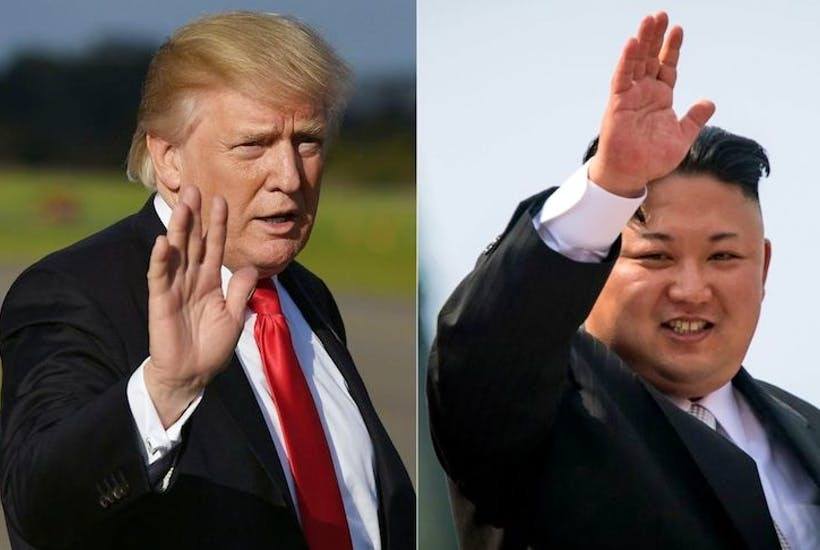Among the many new political maladies of our age, one has been left largely undiagnosed. This is Trump Derangement Syndrome, a condition whereby intense dislike of the 45th president renders sufferers unable to understand what he is trying to do or allow that he is capable of success. Trump is hard to admire, it’s true, and seems to revel in his ability to appal. But therein lies the secret of his power: with a few tweets, he can set the world’s news agenda and drive his critics to distraction.
Take this week, when he tweeted that his nuclear arsenal is larger than that of Kim Jong-un. His comments were seized upon as yet another example of his idiocy and his playground logic. But the point he was making has been the motivating principle behind American strategy for decades: to have more military muscle than any adversaries.
Trump is more explicit about this strategy, to the point of being childishly antagonistic. But his crazier-than-thou approach — aimed not just at Pyongyang but at Beijing, too — is bearing fruit. On Twitter and during his Asian tour last year, Trump has pressed the Chinese to take the North Korean threat more seriously. They already are. Sanctions have been made harsher, with Chinese support, and Kim Jong-un has now given word that he wants to open talks with South Korea. Beijing appears to be coming round to Trump’s analysis, having lost patience with North Korea, its only treaty ally. China has restricted its banks from offering services to North Korean clients. Trump is changing the game in this area, something his predecessors utterly failed to do.
Trump’s diplomacy is brash, to put it mildly. Yet he delivers his message in a way that cuts through to millions of people at home and abroad. He became president thanks to his uncanny ability to amplify his point. He finds arresting, often shocking, ways of making sensible points.
To associate the word ‘sensible’ with anything Trump says might seem like a modern heresy. But most Americans agree with him on the use of torture on terrorists, the turpitude of the media, and the need to stop immigration from the most unstable countries. One might deplore him, but it’s an error to consider his ideas extremist or out of touch.
Trump’s opponents should have learnt by now, but the derangement syndrome stops them seeing sense. When Hillary Clinton referred to his supporters as a ‘basket of deplorables’, she walked straight into his trap. She was so disgusted by Trump that she insulted not just him but a vast swath of the US electorate who were inclined to support him. She was duly punished at the ballot. In 2017, the Democrats may have won three state-wide elections, but they show little sign of having understood the Trump phenomenon. They still treat Trump with the contempt on which he thrives.
As America prepares for its midterm elections in November, the media consensus is that the Republicans are bound to pay the price for Trump’s antics. But voters tend to judge politicians on their record and they will see, alongside a dismal failure to repeal Barack Obama’s healthcare act, a Republican president delivering robust economic growth and the largest tax-cut package for a generation, which has just passed through Congress and includes a corporation tax cut from 35 per cent to 21 per cent.
Abroad, too, Trump can claim success and many Americans will look past the media and believe him. America helped crush Isis, even if the President takes more credit for that than he should. A world that has regained its fear of American might is arguably a little safer as a result. In the Korean peninsula, where old forms of international coercion failed, there are signs of progress. Unpalatable though it may be, Trump’s Twitter diplomacy appears to be working.


















